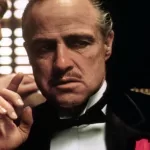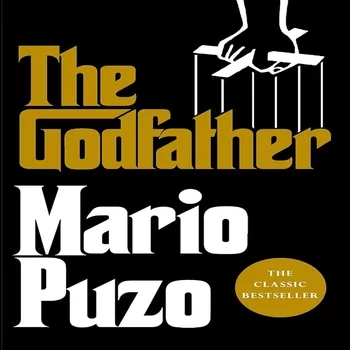Don Vito Corleone

In Mario Puzo’s fascinating story, Vito Corleone emerges as the powerful head of the Corleone crime family, the most dominant Mafia organization in New York City. He is depicted as a resolute Sicilian immigrant who, after settling in the tough Hell’s Kitchen area of west-central Manhattan, carefully builds an extensive criminal empire. Vito’s journey begins in the early 20th century, a time when immigrants faced immense challenges and discrimination. His early experiences in America, marked by hardship and loss, forged his character and instilled in him a deep understanding of loyalty, family, and the harsh realities of survival.
As he navigates the treacherous waters of organized crime, Vito employs a blend of cunning strategy and shrewd negotiation skills. He understands the importance of alliances and the delicate balance of power within the criminal underworld. His ability to forge relationships with influential figures, both within and outside the Mafia, allows him to expand his influence and secure his family’s position. Vito’s rise to power is not merely a tale of violence and intimidation; it is also a story of calculated decisions and the art of persuasion. He often uses favors and reciprocity to build a network of loyalty, ensuring that those who owe him their allegiance are willing to support him in times of need.
Although his rise to power is marked by ruthlessness, Vito adheres to a personal code of honor that sets him apart from many of his contemporaries. He believes in the importance of family, respect, and loyalty, and he often goes to great lengths to protect those he loves. This moral compass guides his actions, even when they lead him to make difficult choices. Vito’s commitment to his family is unwavering; he prioritizes their safety and well-being above all else, often placing them in positions of power within the family business. His sons, particularly Michael, are groomed to take on leadership roles, and Vito’s influence shapes their destinies in profound ways.
Vito’s legacy is further complicated by the duality of his character. While he is a feared and respected figure in the criminal world, he also embodies the values of a traditional patriarch. He is a man who believes in justice, albeit on his terms, and he often acts as a protector of the downtrodden, offering assistance to those in need. This complexity makes him a compelling character, as he navigates the moral ambiguities of his life. His ability to maintain a façade of respectability while engaging in illicit activities adds depth to his empire.
Showing the single result


